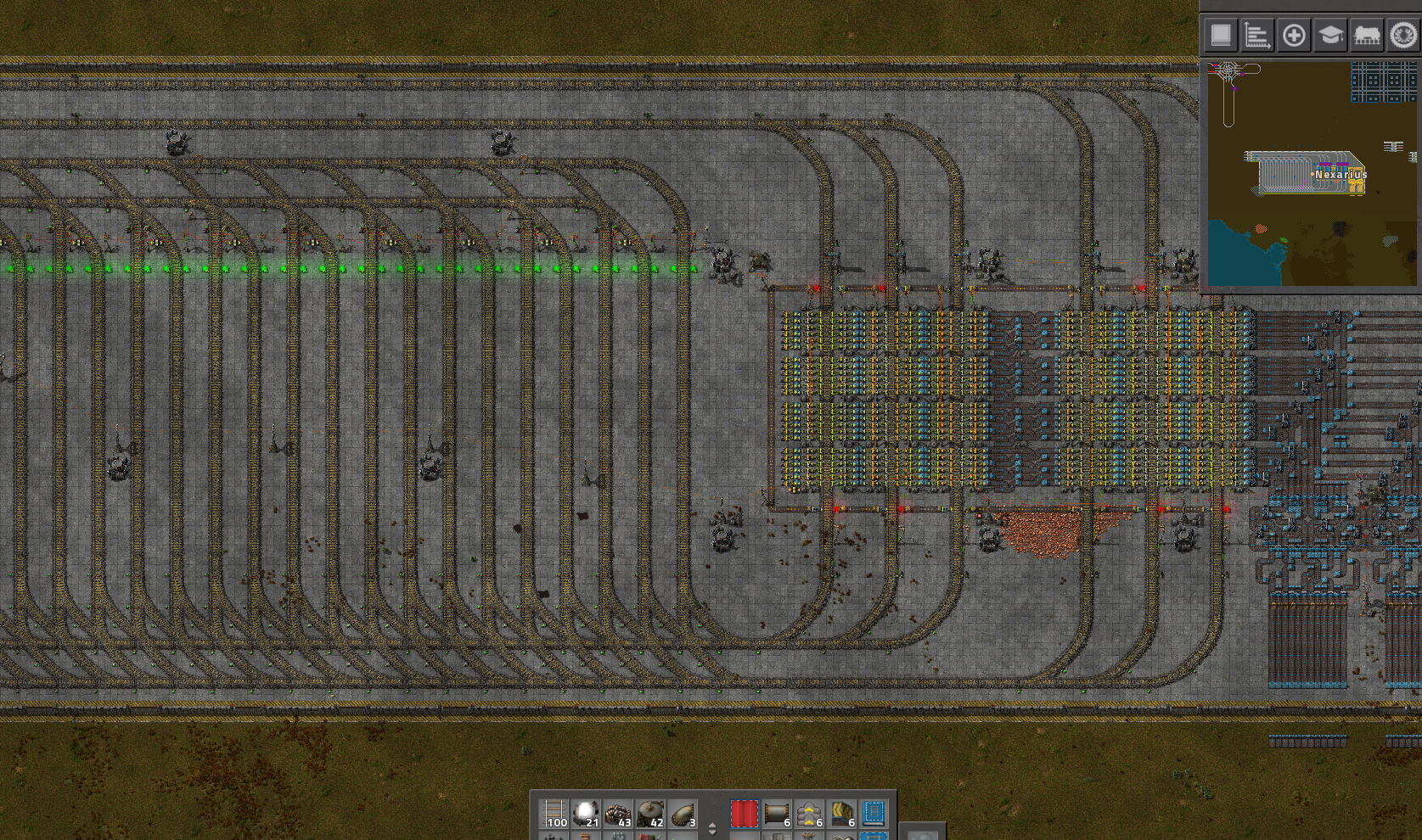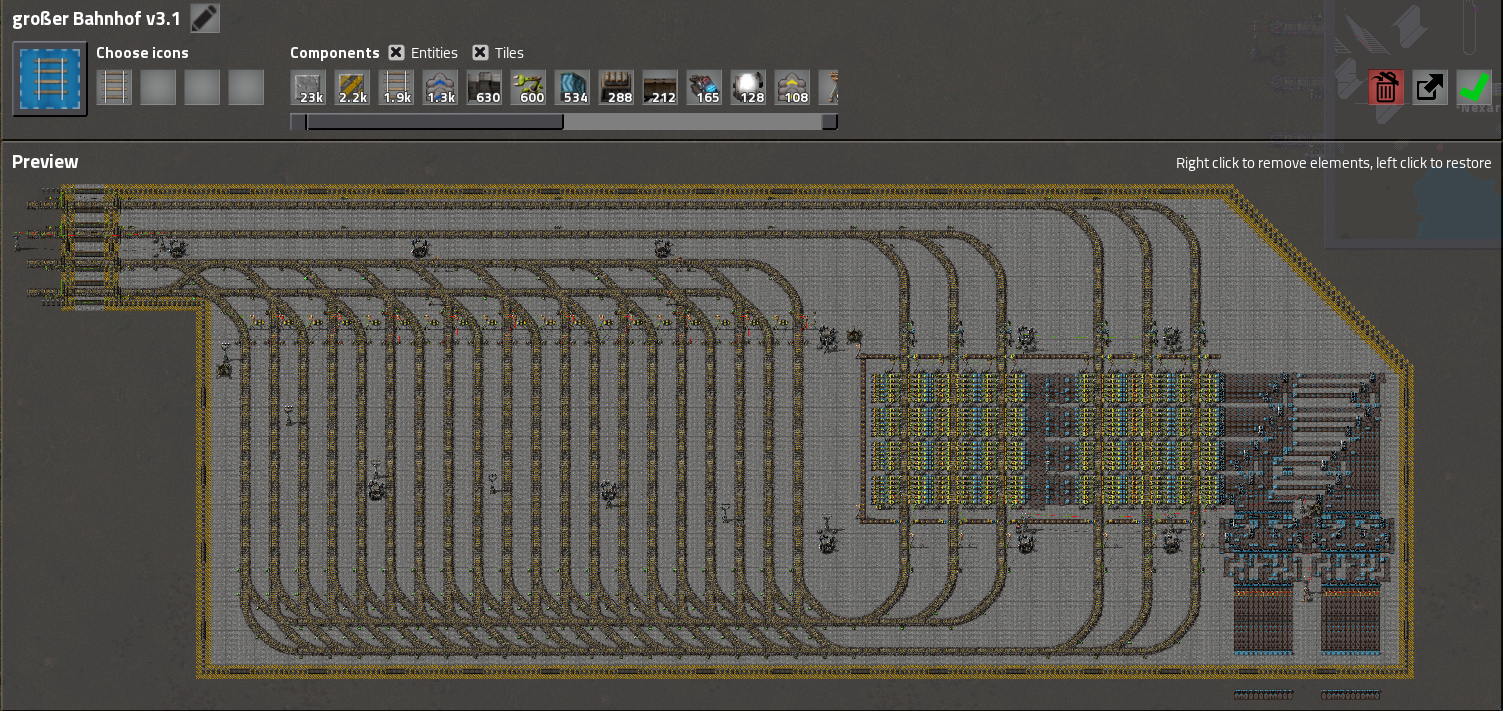It's too big even on max zoomed out view for a complete screenshot because it has a waiting area for 20 trains.





Except they aren't. Not with one waiting bay every 6m like in this setup. The idea also isn't to have all unloading bays 100% saturated but to have enough trains in enough unloading stations to saturate the belt.evildogbot100 wrote:Waiting bay are much thinner than actual station, also for a station that thin, the throughput is severely limited. Also without waiting bay, you rarely able to make a station has near 100% uptime (duration it is loading/unloading). Since the throughput of a station also depends on its uptime, it is a waste to not fully saturate a station usually. Thus the waiting bay.
Yes, you need to be able to handle all trains being stuck at the unloading station. That's why I suggested changing the waiting bays to unloading stations and not suggested to remove them. The number of trains that can fit in the station at the same time wouldn't change.DaveMcW wrote:The main purpose of waiting bays is protection from traffic jams. You can have 5 trains sharing an unload station, and normally only 1 is there at a time (the others are travelling or loading). But if all 5 trains arrive at once, you need somewhere to put them.